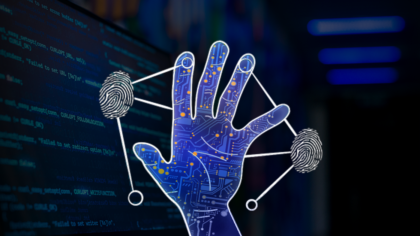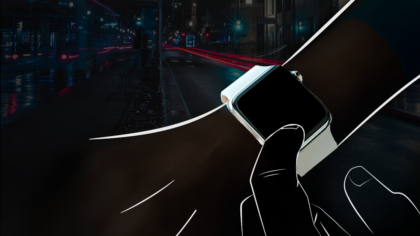Our Innovation Analysts recently looked into emerging technologies and up-and-coming startups in the healthcare industry. As there is a large number of startups working on a wide variety of solutions, we decided to share our insights with you. This time, we are taking a look at 5 promising wearable devices solutions.
Heat Map: 5 Top Wearable Devices Solutions
For our 5 picks of wearable devices startups, we used a data-driven startup scouting approach to identify the most relevant solutions globally. The Global Startup Heat Map below highlights 5 interesting examples out of 598 relevant solutions. Depending on your specific needs, your top picks might look entirely different.
Nanowear – Smart Textiles
Medical-grade textile is capable of capturing millions of signals on the skin and giving it the potential to unlock biometric insights to help wide-ranging medical conditions. The biometric insights include heart rate, respiratory rate, temperature, breathing, stress, movement, acceleration, hormone levels, etc. The US-based Nanowear develops textile-based nanosensor technology with applications in the cardiac, neurological, industrial, safety, and diagnostics monitoring markets. The company’s proprietary technology enables continuous electrophysiological, biometric, and biochemical monitoring — providing medical professionals with accurate diagnostic data through a cost-effective and non-invasive wearable solution.
LVL – Wrist-Worn Devices
Along with tracking fitness activity, heart rate, and sleep, smart bands (bracelets, watches) can measure body composition and hydration levels, to provide a higher level of healthcare. Thereby, reducing expenses for treatments, preventing strokes and other diseases. BSX from Texas is a company which produces wearable sensors and introduced LVL — an integrated optical sensor that simultaneously measures the body’s most critical biosignals, including hydration, heart rate, respiratory rate, oxygen, lactate threshold, and more. It monitors the body in real-time, notifying exactly how much fluid needs to be consumed.
GiveVision – Smart Glasses
Innovative solutions empower to eradicate the barriers that prevent the blind or visually impaired from experiencing full and independent lives within mainstream society in education and employment. Such solutions inspire to increase social inclusion and equal opportunities. The UK-based GiveVision creates a software suite that powers smart glasses to be used as eyes for blind people. It is designed to increase the independence and mobility of the blind and visually impaired by converting visual information to audio cues.
Respira – Body Patches
Connected wearable patches combine health monitoring and therapy delivery. They track heart rate, respiratory rate, skin temperature, body posture, fall detection, activity, analyze sweat, and other vital signs — using non-invasive sensors, physiological measurements, and data analytics. UK startup Respira works on a chest belt that helps people who stutter to master fluency habits during everyday-life activities. It monitors breathing patterns, syllables per breath and anxiety levels. It then provides real-time feedback (i.e. vibrates) to remind the user whenever good speech-related breathing practices are neglected during the day. Respira conducts physiological measurements and performs analysis in real time, allowing it to coach the user to develop positive habits.
iBreve – Cloth Patches
Cloth patches are the results of integrating smart sensors into wearable textiles, (or attached to clothes) and the development of conductive yarn. Clothing is more natural to wear than a wristband or a strap, and able to track more biometric signals due to the larger area of skin that gets covered. Irish company iBreve helps improve stress resilience by analyzing breathing patterns with machine learning. The iBreve wearable detects prolonged phases of shallow breathing, optimizes the respiratory rate and guides through breathing and relaxation exercises.
What About The Other 593 Wearable Devices Solutions?
While we believe data is key to creating insights it can be easy to be overwhelmed by it. Our ambition is to create a comprehensive overview and provide actionable innovation intelligence for your Proof of Concept (PoC), partnership, or investment targets. The 5 wearable devices startups showcased above are promising examples out of 598 we analyzed for this article. To identify the most relevant solutions based on your specific criteria and collaboration strategy, get in touch.


![AI in Healthcare: A Strategic Guide for Industry Leaders [2025-2030]](https://www.startus-insights.com/wp-content/uploads/2025/03/AI-in-Healthcare-SharedImg-StartUs-Insights-noresize-420x236.webp)






